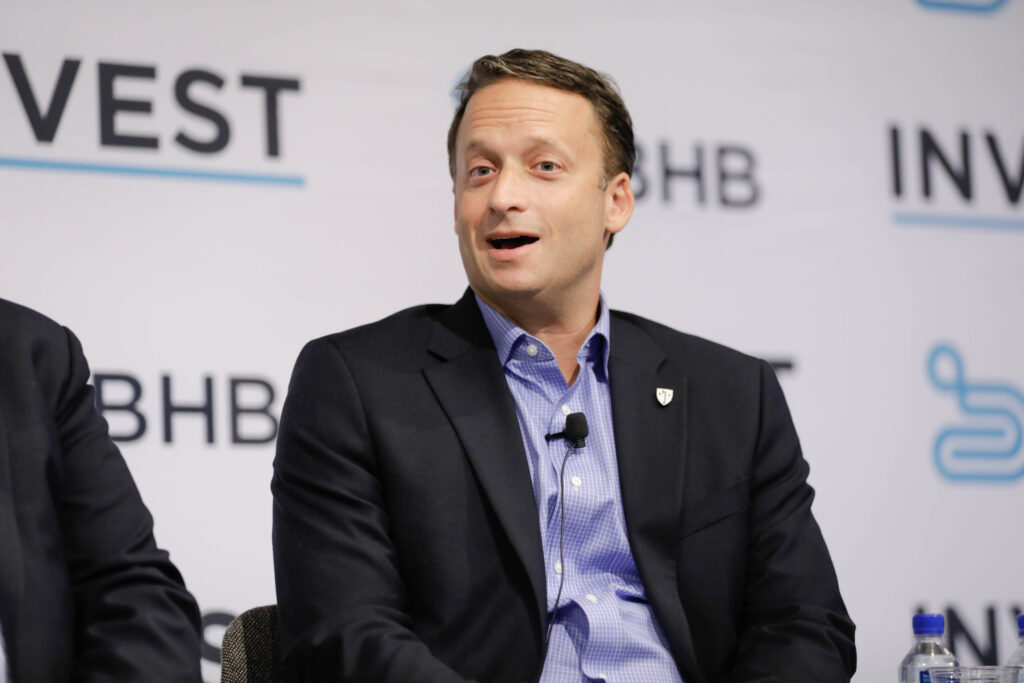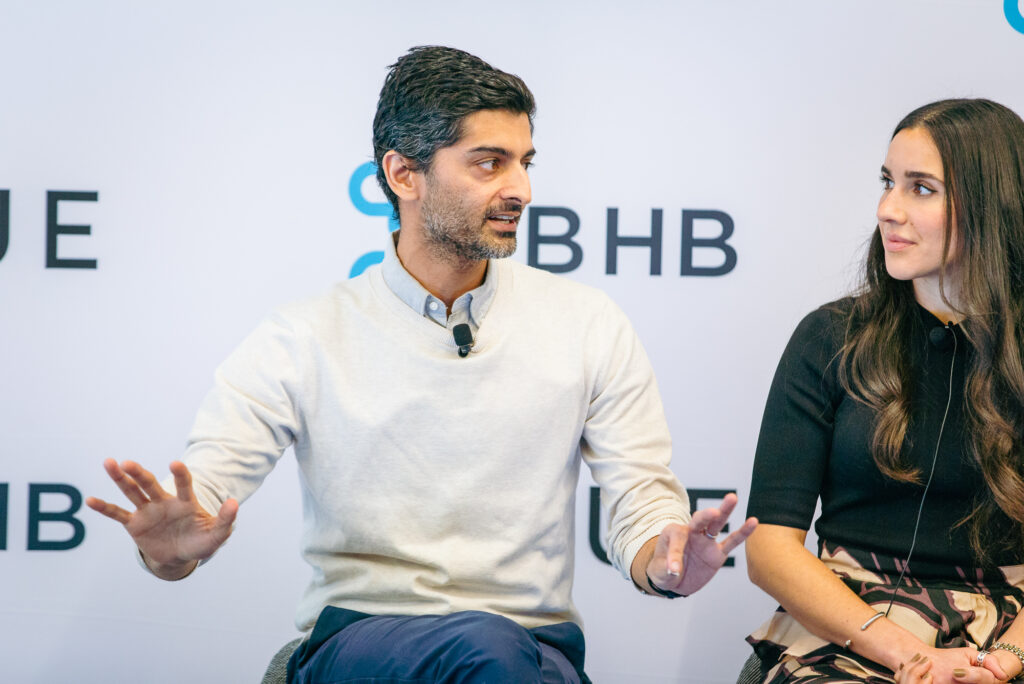With macroeconomic headwinds leading to declining valuations and less M&A activity, the mental health space is at a crossroads. The notoriously fragmented industry is still prime for maturation, but many companies are facing growing pains.
Several companies that came onto the public market during the 2021 boom year are struggling to keep up with investor demands. Private companies, too, are facing pressure from PE and VC investors. As a result the industry has seen a wave of downsizing and layoffs.
This could mean 2023 becomes a transitional year, according to Dexter Braff, president of the M&A advisory firm The Braff Group. This is particularly true for consolidation.
“We are in a transitionary phase, which is code for an M&A guy [saying], ‘It’s not as good as it was last year,’” Braff said at Behavioral Health Business’ VALUE conference in March. “So what’s the outlook? Strong, it’s still good. The demand for behavioral health still far outweighs the supply. What we also see, though, is a more disciplined approach towards determining what’s going to be bought and how much is going to be paid.”
And the mental health segment has continued to see a healthy deal flow in the first quarter, despite the steep drop in behavioral health deals overall.
Several mental health companies are taking innovative approaches to care, business and staffing in order to evolve in the challenging market.
BHB has selected five companies that we will closely monitor throughout the rest of the year, with a focus on mental health care. BHB identified some for their unconventional approach to care and leadership shake-ups, with others highlighted because of their transaction potential.
Read on for a list of the mental health companies we will be watching most closely this year. BHB will be publishing a list of autism and substance use disorder providers to watch later in the season.
Talkspace: digital health’s canary in the coal mine
Founded in 2012, Talkspace (Nasdaq: TALK) is a veteran in the digital behavioral health space.
Before going public, the virtual mental health provider raised more than $100 million. Fueled by the uptick in virtual health needs spurred by the pandemic, Talkspace went public in 2021 via a $1.4 billion SPAC merger. At the time, the company was primarily focused on the direct-to-consumer space.
Since going public, the company has struggled. Its stock went from roughly $10 when it first hit the market to less than $2 a year later. Over the last six months, the company’s stock price has steadily traded under $1. In November, Nasdaq sent a letter to the company threatening to delist it if it could not keep its stock price at or above $1 for 10 consecutive days.
In an effort to reinvent itself, the company has undergone some significant leadership changes. Last year, co-founders Oren Frank, who also served as CEO, and Roni Frank, former head of clinical services, stepped down. In November, the company announced Dr. Jon Cohen would take over as CEO.
Under Cohen, the company has refocused its efforts away from the D2C market and doubled down on its B2B efforts.
And the tides may be turning for Talkspace. Nasdaq gave the company a six-month extension on raising its share price, and as of May 19, the company began trading at $1. Additionally, in the company’s Q1 2023 earnings call, Cohen announced that Talkspace projects it will be profitable by the end of the year.
There have also been numerous acquisition rumors for the last year. In 2022, reports first surfaced that behavioral health provider Mindpath was in deal negotiations with Talkspace. However, the deal failed to materialize. Then, new reports emerged that Talkspace was in talks with telehealth giant Amwell. But this deal did not come to fruition either.
We’ll be watching this company closely over the next year, checking in on if a deal comes into play or if the company’s new B2B focus does lead to profitability. If Talkspace is successful, it could be a model for other digital behavioral health companies struggling to keep up profits in the post-COVID-19 era.
LifeStance: cutting contracts, innovating toward efficiency
LifeStance Health Group (Nasdaq: LFST) is one of the country’s largest outpatient behavioral health providers – if not the largest. The provider was founded in 2017 with private equity backing from Summit Partners and Silversmith Capital Partners.
It operates in 34 states and has 600 care centers. LifeStance offers virtual and in-person outpatient mental health care for children, youth and adults with several mental health conditions.

In 2021, the company went public through a $720 million IPO. Since going public, it has had a challenging run on the public market. When LifeStance made its public debut, it was valued at roughly $7.5 billion, and its market cap is now about $3.1 billion.
The company has recently had a significant leadership change. In September, its founding CEO, Michael Lester, announced his retirement, and WellCare and UnitedHealthcare veteran Ken Burdick took over. Additionally, in 2022, the company named Danish Qureshi its chief operating officer and president.
In taking on leadership of LifeStance, I am laser-focused on execution, profitability and operational excellence.
Ken Burdick, chairman and CEO of LifeStance
The company’s new leadership has prioritized profitability and execution.
“It is clear to me that we’re not performing to our full potential,” Burdick, chairman and CEO of LifeStance, said during a 2022 Q3 earnings call. “In taking on leadership of LifeStance, I am laser-focused on execution, profitability and operational excellence.”
One of the ways that the company plans to improve its operations is through cutting payer contracts. Last year, Burdick revealed that the company had more than 400 payer contracts, which created more administrative burden than upside. As a result, the company is cutting about 30% of its payer contracts, about 140 in total.
“Terminating these contracts will have an immaterial impact on visit volume,” Burdick said during the company’s Q1 2023 earnings call. “But it will have a material impact on efficiency for our credentialing, intake and revenue cycle management teams.”
BHB is watching LifeStance to see if its new operational efficiencies pay off this year. If cutting payer contracts is successful, it could be a path forward for other behavioral health providers looking to slim down their administrative burden.
We’re also watching LifeStance because of its innovation efforts. In line with its efficiency efforts, the company has recently rolled out an online booking system and is launching an EHR discovery initiative. Burdick is projecting that the company will be cash-flow positive by 2025.
ARC Health: M&A that lets clinicians keep a stake in the company
ARC Health has been expanding with break-neck speed over the last year through its ambitious M&A strategy.
The company was formed in 2021 when private equity firm Thurston Group invested in Advanced Recovery Concepts.
The company’s business model is unique. It only considers acquisitions where the clinical leadership wants to stick around after the sale. It also allows practice owners to roll the capital gained through the acquisition into the firm. Specifically, practice owners can invest between 20% and 40% of the enterprise value of the sale into Class A shares of ARC Health.
Dubbed the “Pathway to Ownership” program, the initiative is aimed at attracting new providers and retaining existing staff.
So far, this has led to rapid expansion. The company grew from one practice in 2021 to 16 practices and 25 locations by the end of 2022. And the company revealed to BHB that it plans to roughly double its size by the end of 2023.
“If I’m looking at 2023, … our pipeline has already grown for the first, second and third quarter where we’re standing today,” Dan Davis, managing director at Thurston Group, said in a previous interview with BHB. “That trend is going to continue even with a down market.”
We’ve already seen some of that expansion. In May, the company announced its fourth acquisition of the year.
If ARC’s approach to acquisitions leads to long-term success, it could be an example of how other private equity firms entering the space could proceed.
Refresh: Working within a large payvider system
Optum is UnitedHealth Group’s (NYSE: UNH) care services arm. Its acquisition of behavioral health provider Refresh Mental Health launched the provider organization into the spotlight last year.
The deal, reportedly worth just over $1 billion, gave Optum a foothold in the behavioral health space – while also giving Refresh some dry powder.
M&A is still a large part of what we do at Refresh.
CEO of Refresh Steve Gold
Moving forward, this could put Refresh in an ideal position to grow its footprint in the fragmented mental health space.
“M&A is still a large part of what we do at Refresh,” Steve Gold, CEO of Refresh, said at BHB’s INVEST event last year. “We’re still interested in partnering with great clinicians, psychiatrists and practice owners, who want to take their practice to the next level.”

We’ll also be watching the evolution of Refresh under UnitedHealth Group’s direction because it could set a precedent for how the growing number of “payvider” organizations integrate behavioral health into their strategies.
Specifically, Refresh’s integration into the continuum of care could also help Optum as it explores more value-based arrangements.
Earlier this year, Gold said that Refresh would work within the larger Optum organization to test-drive more innovative payment models.
“The plan [is] for us to align that primary care capitation model over time. I think that’s really an interesting, innovative field – and one of the reasons for me and our team being really excited to join Optum. This [is an] opportunity to try some of these things out in arrangements where we don’t get burned,” Gold said. “We can try some different things and hopefully [see] that it works and then lower the total cost of care, improve patient experience, improve patient outcomes. That’s what we’re trying to do.”
BHB will be watching Refresh to see how it grows Optum’s behavioral health efforts and pushes the narrative on value-based care ahead.
firsthand: taking on SMI’s toughest challenge
Patient engagement has historically been a massive challenge in caring for patients with serious mental illness. New York City-based firsthand is looking to change that by using a peer model to engage patients with SMI and help them find resources.
firsthand’s peer-support specialists, dubbed firsthand guides, have lived experience with SMI and are trained to engage with a patient at home. The program also includes benefit-enrollment specialists that help patients enroll in benefits.

These benefits include health insurance, housing support, nutrition assistance and transit vouchers. Patients are also connected to a nurse practitioner, called a health guide, who can help assess a patient’s physical and mental health needs.
To support the program, firsthand uses digital tools to help streamline programs and track data.
Its business model relies on working with payers, mainly in the Medicaid space. It currently contracts with three states: Tennessee, Ohio and Florida.
Founded in 2021, the startup has caught investor attention, too. Earlier this year, the company raised $28 million in a funding round led by GV, previously Google Ventures, and this brought the company’s total raise to over $40 million.
We’re watching firsthand because of its unique peer-supported approach to addressing one of the most pressing issues facing the SMI patient population: engagement. Only about 64.5% of patients with SMI received mental health treatment in the past year, according to the National Institute of Mental Health (NIMH).
If engaged, patients could have better overall outcomes and drive down the cost of care. firsthand is still in the early innings, but it could be a model for how the industry could use peers to tackle one of the most complex challenges in the space.
Don’t forget about the field
BHB is betting that the five aforementioned businesses will leave their marks on mental health in 2023 and beyond. That’s not to say others won’t as well, however.
The mental health segment within the broader behavioral health landscape is filled with dozens of innovators, disruptors and rapidly growing companies. Just a few additional companies worth following include Universal Health Services (NYSE: UHS), Odyssey and Discovery Behavioral Health, for example.
We’ll be watching one of the largest behavioral health providers, Acadia Healthcare Company (Nasdaq: ACHC), because of its ambitious joint venture plans, which could set a precedent for growth in the future.
Meanwhile, virtual provider Cerebral is on our radar as it faces not only a Department of Justice investigation but also a public image issue for its prescribing practices of Adderall.
And Spring Health is worth keeping an eye on because it managed to raise a whopping $71 million in funding despite the slow down of investment this year.
Companies featured in this article:
ARC Health, Cerebral, Discovery Behavioral Health, firsthand, LifeStance Health, Odyssey Behavioral Healthcare, Refresh Mental Health, Spring Health, Talkspace, Universal Health Services



